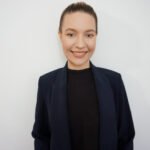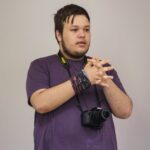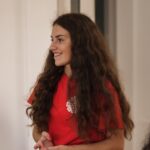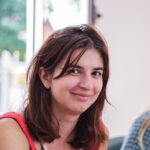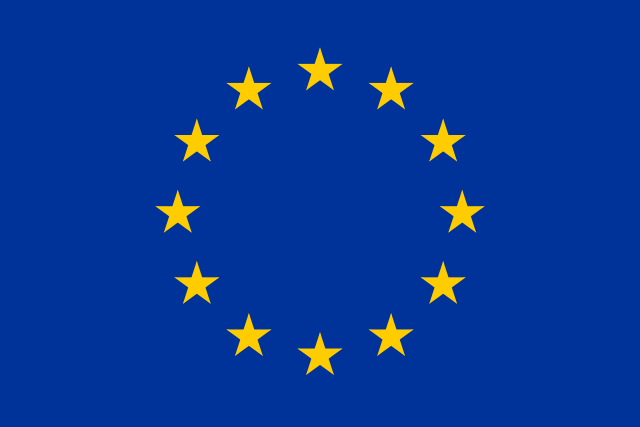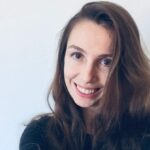Through the European Parliament simulations I discovered the way the European Parliament works, its structure and its decision-making process. It was a unique experience for me, because I succeeded in experimenting with these activities. I even had the chance to be the President of an E.P. committee and «play» with the laws which decide EU citizens' future. If I had the chance to repeat this experience, I would do it immediately. Moreover, I want to give this opportunity to as many young people as possible.
Take part in elections and make your voice heard! Thanks to their pioneering campaign to demystify the workings of the European Parliament, five young people have helped to inspire Romanian students to engage in decision-making processes. Their interactive workshops and European Parliament simulations gave youngsters a unique insight into what the European Union really does and how to make the most of the opportunities it offers!
Participation is getting involved in all the aspects of the community we live in, either directly or indirectly. It is about expressing our ideas and expectations regarding the development of the community and the decisions which impact all of us. Participation is one of the ways through which we can shift the direction of our society, either by going to vote, by participating in public debates, or by taking initiative and implementing our own ideas.
We talked to the Project Coordinator, Bianca Butacu:
Which aspects of your project were most successful?
We reached a high number of participants in all the 22 activities we ran, but our workshop on participatory democracy in Onești city was especially amazing. With the support of the “Grigore Moisil” National College Onești, which is a European Parliament Ambassador School, we were able to spend three hours with 200 students in the municipal library! We began by discussing the Romanian presidential elections, how the local and central public institutions work, and why it is important to vote. Then our guest expert, Timothy McKinney, of United Global Outreach in Miami, Florida, talked us through the differences between various democratic processes and how young people can get involved in their communities. Finally, we had a World Café where participants discussed different aspects of their city in ten years, such as programmes for young people, the influence of social media on decision making, volunteering opportunities and so on.
Where did the idea for the project come from?
I have always been passionate about European affairs! I got the inspiration from one of the priorities in 2018 set for the European Solidarity Programmes in Romania: promoting the European Parliamentary elections. As the Romanian presidential elections were being held in 2019, it was a timely opportunity to promote young people’s participation in democracy.
How did you structure your team?
We were five volunteers of the Active Development Association (ADA) from Bacău city, Romania. We all selected different tasks based on our own interests and expertise. I had been part of management teams with other projects, but this was the first time that I initiated and coordinated a project from beginning to end!
Were there particularly rewarding aspects of the project?
Discovering and developing skills in new areas was definitely important for us. For instance, I learned how to manage the website and the Facebook page, as well as writing articles, press releases and designing posters. We also gained a lot of useful insights into the workings of European elections and the various political groups within the European Parliament. We also understood how to do the documentation and administration of youth projects funded by the European Union. Having met and collaborated with a lot of people, we managed to bring new partners to our NGO. Also, getting involved in promoting the elections and having an influence on the engagement of young people in the community are definitely reasons to repeat this experience.
What was the role of the Active Development Association in the project?
I wrote the project, but the association needed to present the application for funding from the European Solidarity Corps programme. We received a lot of support from the president of ADA and we had a coach from the organisation. The latter helped particularly in setting goals for personal and professional development.
Were there any obstacles?
Of course! For example, it was not so easy to find local partners. There are some cities where schools have stricter rules regarding hosting events about politics, even neutral ones. Eventually we decided to move our activities to other cities. A further challenge occurred during the summer when we planned to recreate the European Parliament elections. To simulate the European Parliament which has more than 800 members, we aimed to host a big group of participants, but most of the young people were on holiday. Our local partners, teachers and volunteers of the association helped us spread the word. We had a contact list as well from previous events which helped us reach our target, around 40 participants!
How did you engage young people in the activities?
It depended on the group: we had activities with young people who were well-informed about what is going on at the European level, and especially, about the elections. In other activities, we had to start from the basics, introducing the European Union and its main institutions. Moreover, some young people were not used to expressing an opinion, so we started each activity with energisers and games to break the ice. This loosened them up and helped us to gauge their level of knowledge about the discussion topic. Firstly, we identified different development projects from the participants’ area, and explained how the European Union was involved there, especially with funding them. When youngsters started to feel comfortable to talk, we could then steer the conversation towards the elections.
Why did you choose to focus your project on the youth of Bacău county?
As ADA has been active since 2012 in this county, we have experience in cooperating with local NGOs, schools and young people through several projects. We noticed that young people are not aware of the importance of participatory democracy and the role they have as citizens, especially those aged 16-24 years old. Therefore, for the entire year of 2019, we focused on promoting participatory democracy for them. Outside the main city of the county, it can be difficult for young people to participate in youth opportunities. So, we decided to visit them instead! We chose eight cities for our activities and held them in local high schools or at our local partners’ offices, which everyone could reach easily.
What were the main phases of organising the project?
After identifying the needs of our local community and the issues we felt passionate about, we formed the team and applied for the funding. Thanks to the application form that has detailed questions about all aspects of the project, we clearly understood what we wanted to achieve, how many people to reach, how many magazines to publish and so on. It is important to establish these targets and goals to ensure that your plan can work. We identified our partners, created a logo, discussed the calendar and organised logistics with our partners. Activities were always followed by feedback sessions with both participants and partners, to evaluate our performance.
How did you use the feedback?
For example, in the European Parliament simulations, we brought the original versions of some laws to analyse with the group, but most of the participants were not used to this official language. The second time I did this activity I made a summary of the law in my words. It was more effective like that! We learned that the environment counts too, classrooms were too formal so we preferred halls not used for regular school activities. In case of good weather, we went outside, so that students didn’t consider us professors but rather their colleagues.
Are there any follow-ups?
Since the pandemic we have concentrated on developing our Facebook page and website content and a new issue of the magazine, featuring the impact of coronavirus on youth participation, will be published in December 2020.
Project outcomes
Four issues of the Youth for Democracy Magazine were published during the project.
Youth for Democracy Magazine
Young people wrote about several good examples of youth participation in their communities. Thanks to their articles you can get to know better the European Solidarity Corps programme, the European Parliament and the Youth for Democracy project! It is worth browsing the magazines.
View solution
About the project
Supported by:
European Solidarity Corps / Solidarity Projects
EU Youth Programme Priority:
Participation in Democratic Life
Topic:
Youth Participation / Activism and Decision Making
Youth Goals:
Visibility:
Among the fantastic outcomes you can find thirty online articles and four issues of the Youth for Democracy Magazine! The visibility of the project was enhanced by promotional videos on a catchy website and a super active Facebook page! Moreover, organisers intended to help other organisations with a guide of best practices available in Romanian.
Organisations involved:
Active Development Association (Asociația pentru Dezvoltare Activă – RO)





